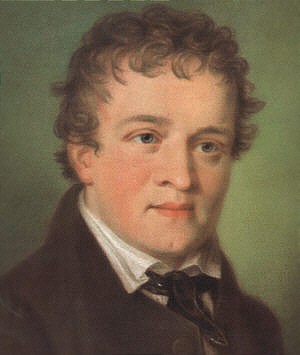
Some members of the community are reluctant to accept Kaspar but the majority welcome him, although not as an equal but as an outsider, an immigrant who is eventually put to work as a member of a freak show, billed as one of the “four riddles of the spheres” alongside a dwarf, a savage from the new world and an autistic young Mozart. Herzog’s casting of Bruno S., a man found by Herzog working as a toilet attendant, makes the film all the more convincing due to Bruno’s history of speechlessness in his youth brought about by beatings by his prostitute mother. Kaspar grunts, he has barely learned to walk and is amazed and sometimes fearful of the most simple of objects and animals. He has acquired minimal language save one complete phrase, “I want to be a gallant rider, like my father before me”, planted by his captor, who perhaps is his father. We know from the opening scenes of the film that Kaspar had been kept in a chamber isolated from human contact. Herzog’s reimagining of the 19th century legend of Kaspar Hauser sees a young, almost mute, perhaps retarded man appear early one morning in Nuremberg unannounced and unchaperoned to the confusion of the townsmen and women. Almost 40 years after the release of The Enigma of Kaspar Hauser the impact of the film has lost little of its power to shock and to mystify. The most moving of German director Werner Herzog’s films are often his most controversial. Werner Herzog’s re-imagining of the German legend of a boy raised in a cellar is re-released and showing in London cinemas this month.
The enigma of kaspar hauser skin#

Indeed, Werner Herzog is barely interested in the enigmatic origins of a foundling who had apparently been deprived of all human contact before his sudden emergence (knowing just one phrase of German) as a teenager. The ‘N.’ is Nuremburg, but the faux-reluctance to identify the location of this real-life mystery hints early at the film’s novelistic approach to historical materials.


“In 1828,” reads the text that opens The Enigma Of Kaspar Hauser (or, to translate its original German title, Every Man For Himself And God Against All), “a ragged boy was found abandoned in the town of N.”

Review first published by New Empress Magazine.


 0 kommentar(er)
0 kommentar(er)
